Imagine health screenings as your body’s personal check-in: they’re like secret agents that can detect health issues you might not feel or see yet. Going to a heart-to-heart on reasons why these check-ups are super important, what kinds you might need, and how they can turn the tables in your favor health-wise.
We’ll also talk about how you can prepare for a visit to the doctors, how to tackle the processes about screenings, and what to do once you’ve got your results. Keeping up with regular health screenings isn’t just a good move—it’s essential, kind of like keeping your health on a regular tune-up schedule.
The old saying is spot-on: an ounce of prevention is definitely worth a pound of cure, especially when we’re talking health. Stealthy health issues often hang around unnoticed until they’re big trouble. That’s where regular health check-ups come into play—they’re your body’s lookout.
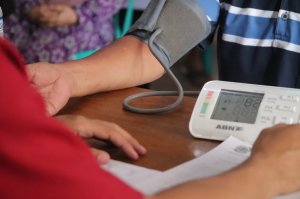
Importance of Preventative Health Screenings
Contents
Health screenings are like gatekeepers for wellness—they keep an eye on everything, alerting you to health blips before they turn into something major. Much like you wouldn’t ignore odd noises from your car, keeping tabs on your health through screenings can catch those small changes that may need attention, keeping you rolling smoothly.
Plus, when it comes to sneaky health issues, like cancer or diabetes, these screenings are your early-warning system. Catching these issues at the get-go often leads to a better shot at straightforward treatments and a brighter outlook. It’s sort of like glancing at a roadmap regularly to make sure you’re not veering off course, instead of realizing too late that you’re lost.
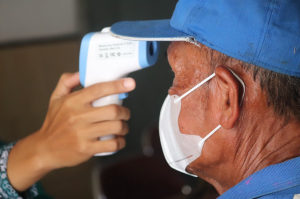
What Types of Health Screenings Are There
From blood pressure to cholesterol checks and mammograms, the health world’s got a variety of screenings—each a specialist in its field, ready to spot early signs of specific conditions. Think of them as dedicated detectives, each trained to track down different culprits of disease.
The right check-up for you can hinge on a bunch of things—your age and what your family’s health history looks like. As the years go by or if there’s a recurring ailment in your family tree, doctors usually have a tailored menu of screenings they’ll nudge you to get.
These aren’t just guesswork; they’re based on research aplenty to make sure you’re getting the screening that’s spot-on for your stage of life.
Health Screening Guidelines
Sticking to health screening guidelines is like following a good maintenance schedule—you want to get certain tests done regularly, based on how old you are. If you’re a woman heading into her 40s, for example, a mammogram might start making its way onto your health agenda. And it’s time to think about that colonoscopy chat with your doctors.
Now, if you’ve got health risk factors, like a history of heart disease or cancer in the family, your health game plan might look a bit different. You might have to start on screenings sooner or do them more often—sort of like playing it extra safe. And keep your eyes peeled for advice from health organizations. They’re always updating guidelines to make sure everyone’s playing their health A-game with the most current information.
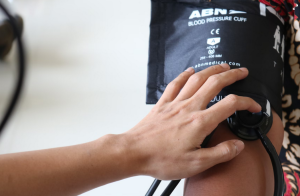
When You Need Preventative Health Screenings
Ever notice odd changes in your body, like a lump that wasn’t there before, or pain that doesn’t quit? Those can be your body’s way of flashing a yellow light, signaling it’s time for a health screening. Always loop in your doctors when something going on.
Here’s the lowdown, though: feeling good doesn’t mean you can skip the routine health line-up. Even without any symptoms, screenings can reveal secret health issues or give you a heads-up on areas to watch. There are countless stories of folks who only discovered health flukes because they rocked up for their usual screening. That’s the real deal with staying true to those health screening appointments, even when you’re thinking you’re in the best shape of your life.
Preparing for Your Health Screening
Have you got a health screening lined up? Make sure you stick to any to-dos your doctor gives you—like skipping food before certain blood tests. Go down any medical you’re on and come loaded with questions about your health or what to expect at the screening. A bit of prep can really take the edge off.
When it comes to doctor visits, remember it’s not a monologue—it’s teamwork. Don’t just nod along; ask why you need the test, the ins and outs, the good and bad, and how regularly you should come back. This is your health, your life. Being clued up gives you the know-how to steer it right.
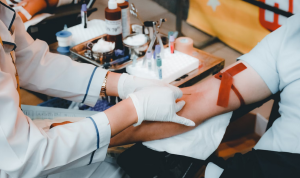
Overcoming Barriers to Screening
There are a bunch of reasons people might dodge health screenings; maybe it’s nervousness about the results, a bit of angst about the procedure itself, or dread over the bill or the time it eats up. Getting over these stumbles is key—ignoring your body’s health to save some momentary stress isn’t the best trade-off.
Your doctors are like your teammates—they’ll walk you through what’s going down and help you get comfy with it all. Plus, remember, loads of health plans actually cover preventive screenings, and there are usually community gigs that offer screenings on the cheap for folks flying solo without insurance. The more you know about screening whys and hows, the less intimidating it gets.
After the Screening – Next Steps
Post-screening, it’s game time to dig into what those results mean. Pull up a chair and have a heart-to-heart with your doctor about your results and if there are extra tests or steps you should take next. It’s like getting your exam paper back; you need the score to figure out your next study move.
If something bubbles up in your screening, jump into whatever next steps are needed, be it popping pills, getting more tests, or tweaking your everyday. And if your results are as clean as a whistle? Keep up those healthy moves and pencil in the next screenings. This isn’t like passing a one-time test—it’s about keeping up the good work for the long haul.
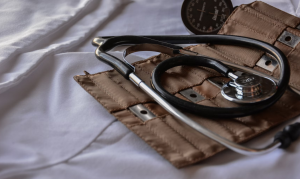
Health screenings are like the guardians of your well-being. They’ve got the power to sniff out health troubles early, sidelining bigger issues down the line. Stay true to those screening schedules and you’re not just playing defense—you’re stacking the deck in your favor.
This sit-down’s all about nudging you to keep those screenings in your calendar. Being on the ball about your health is the savviest play you can make, so take this to heart, do your health homework, and keep winning at this game we call life. Your future self will be throwing high fives your way for sure.

